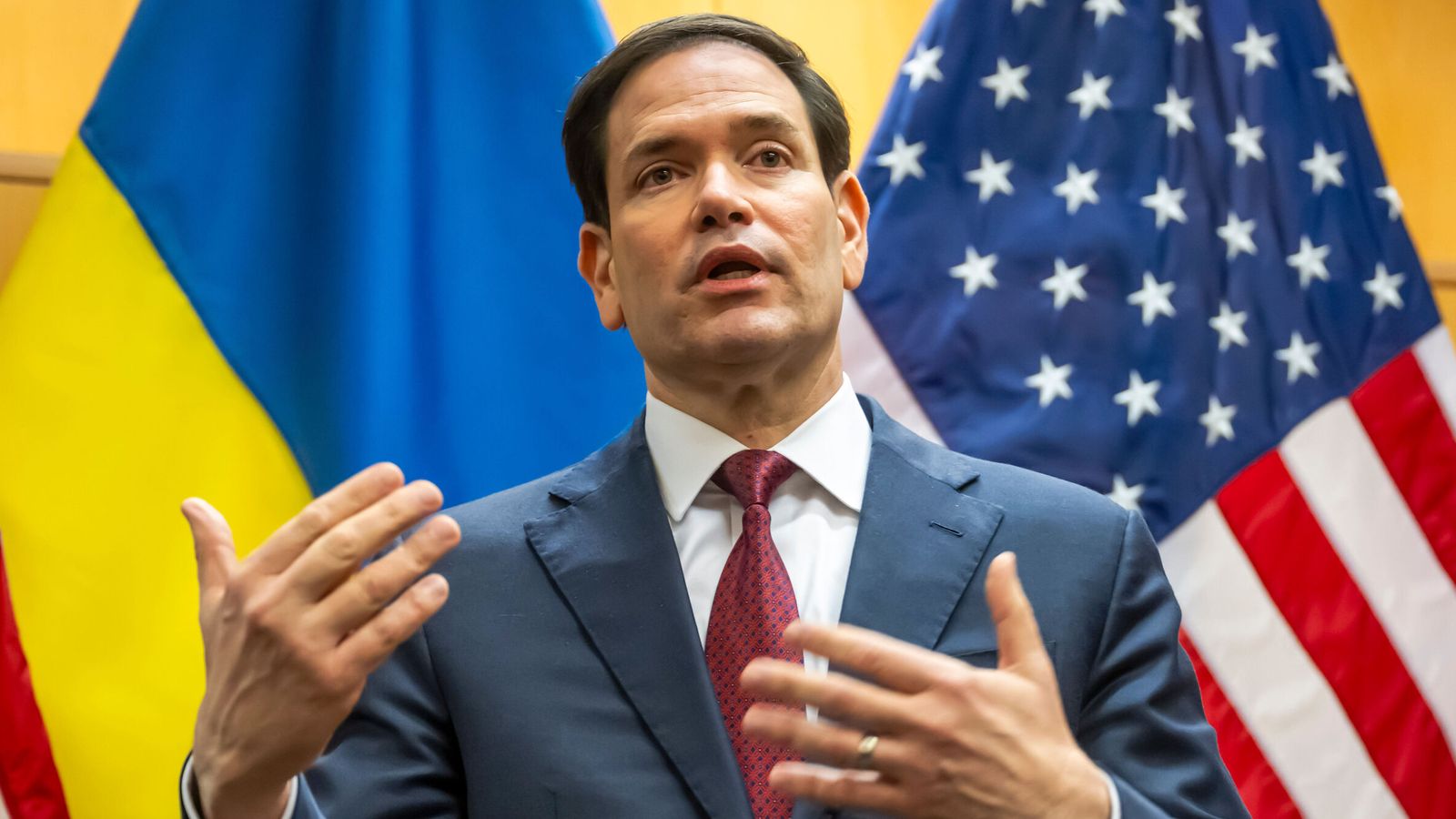News Beat
US hails ‘tremendous progress’ on Ukraine peace plan – but says negotiators ‘need more time’ | World News

The US secretary of state has hailed a “tremendous amount of progress” on peace talks after the US and Ukraine delegations met in Geneva – but said that negotiators would “need more time”.
Marco Rubio said the meetings in Switzerland on Sunday have been “the most productive and meaningful” of the peace process so far.
He said the US was making “some changes” to the peace plan, seemingly based on Ukrainian suggestions, “in the hopes of further narrowing the differences and getting closer to something that both Ukraine and obviously the United States are very comfortable with”.
Mr Rubio struck an optimistic tone talking to the media after discussions but was light on the details, saying there was still work to be done.
“I don’t want to declare victory or finality here. There’s still some work to be done, but we are much further ahead today at this time than we were when we began this morning and where we were a week ago for certain,” Mr Rubio said.
He also stressed: “We just need more time than what we have today. I honestly believe we’ll get there.”
Sky News’ defence analyst Michael Clarke said on the initial US-Russian 28-point peace plan that it was Donald Trump against the world, with maybe only Moscow on his side.
Mr Rubio praised the Ukrainian attitude towards the talks and said Mr Trump was “quite pleased” after he previously said in a social media post that Ukraine’s leaders had expressed “ZERO GRATITUDE” for US efforts.
Ukrainian President Volodymyr Zelenskyy said in his nightly address on Sunday that there are signs that “President Trump’s team hears us”.
In a press release on Sunday evening, the White House said the day “marked a significant step forward”.
“Ukrainian representatives stated that, based on the revisions and clarifications presented today, they believe the current draft reflects their national interests and provides credible and enforceable mechanisms to safeguard Ukraine’s security in both the near and long term,” it claimed.
European leaders have presented a counter proposal to the widely criticised US-Russian peace plan, with suggestions including a cap on Ukraine’s peacetime army and readmitting Moscow into the G8.
This will only take place if the plan is agreed to by the US, Russia and Ukraine, and the G7 signs off on the move. Russia was expelled after annexing Crimea in 2014.
The counter proposal also includes US guarantees to Ukraine that mirror NATO’s Article 5 – the idea that “an armed attack against one NATO member shall be considered an attack against them all”.
The initial peace plan was worked up by the White House and Kremlin without Ukraine’s involvement, and it acquiesces to many of Russia’s previous demands.
Read more:
Who actually wrote US-Russian peace plan for Ukraine?
In full: Europe’s 28-point counter proposal to US-Russia plan
It covers a range of issues – from territorial concessions to reconstruction programmes, the future Ukrainian relationship with NATO and the EU, and educational reforms in both Ukraine and Russia.














